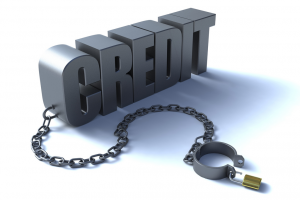 I taught bankruptcy education classes for eight years, and one of the most frequently asked questions by participants was how long a bankruptcy judgment would stay on their credit report. According to surveys conducted by the three credit reporting agencies (Experian, Equifax, and Transunion), the number one reason consumers call or visit their website is to ascertain how long information stays on a credit report. Most of those consumers, like my program participants, want to know specifically how long negative information will affect their credit history and score.
I taught bankruptcy education classes for eight years, and one of the most frequently asked questions by participants was how long a bankruptcy judgment would stay on their credit report. According to surveys conducted by the three credit reporting agencies (Experian, Equifax, and Transunion), the number one reason consumers call or visit their website is to ascertain how long information stays on a credit report. Most of those consumers, like my program participants, want to know specifically how long negative information will affect their credit history and score.
Credit reports are vital links to creditors about the state of your personal finances, so it’s fortunate there are set time frames for how long negative information can stay in the report. It’s Important to remember that negative information in a credit report does not originate from the credit reporting agencies—all they do is compile information sent to them by YOUR creditors (people you borrowed from), public record information (liens, bankruptcies), and/or collection agencies.
Listed below are various types of accounts and time frames for how long information will stay on your report:
Credit Accounts (examples include credit cards, home equity lines of credit, car payments, mortgages, home equity loans, student loans, and open loans such as utilities and cell phones)
+Accounts in good standing—10 years since date of last activity on the account
+Accounts not paid—7 years from the date when you became past due
+Late payment history—remains on credit report for 7 years
Collection Accounts (when your loan or debt is turned over by a creditor to a collection agency)
+Remains on file for 7 years from the date the account first became past due
Public Records (Legal documents on file with federal and local governments; public can access)
+Judgments remain on file for 7 years from the date filed
+Tax liens that are paid remain on file for 7 years from the date you paid them
+Unpaid tax liens stay in your file indefinitely
Bankruptcy (A legal proceeding in which a consumer is discharged of all—or in some cases only a portion—of his or her unsecured debt)
+Chapter 7, 11, or a non-discharged chapter 13 stay on for 10 years from the date filed
+Discharged bankruptcies stay on for 7 years from the date filed
Inquiries (request by an outsider to view or access your credit report)
+Company requests may stay on 1-2 years (example—car dealership)
+Promotional inquiries (those letters you get in the mail offering credit opportunities) stay on for 12 months, but do not affect your credit score
Bottom Line
While negative information in a credit report does not confer lifetime punishment, a 7-10 year time frame may feel like a lifetime when your financial needs are right now (e.g. replacing a car or purchasing a home). Some creditors make overlook a negative credit report when deciding whether to loan you money or not, but their “largesse” will probably come with an outrageous interest rate. Other creditors may be a little more forgiving if they see that you have gotten back on track and are financially stable now, so that’s all the more reason to get your financial house in order as soon as possible.

